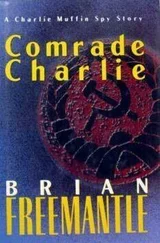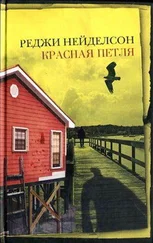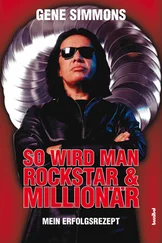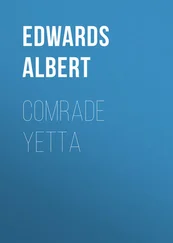Mrs. Brown got up suddenly from her chair and went to the windows, one at a time, fastening the wooden shutters, then closing the windows: There was a storm coming and you could hear the wind and somewhere a flag flapping in it like wet laundry.
I liked Mrs. Brown. She was a handsome woman with fine, powdery white skin and hair, but she wasn't a fragile old lady. She was tough and funny, and some of the time she (Well, my goodness!) camped it up, her hands on her hips, full of self-mockery and good humor. Her back was straight and she wore a sweatshirt from the University of Hawaii, where she had just finished her doctorate in women's peace studies. At seventy-four, she was immensely hospitable and naturally wary, and she had an unbending determination to see right done by her boy who was dead in East Berlin. At first we made small talk.
Mrs. Brown was no fool, Courteously, she asked who I was. Leslie Woodhead, who was there too, talked about the drama-documentary he hoped to make, and I mumbled something about writing for the Guardian and tried, shamelessly, to refer to my right-on past on various picket lines and peace marches. Ho Ho Ho Chi Minh, I almost said. It was OK; Mrs. Brown got the point.
"I had that child for a special reason. I always thought that Dean was born under a magic star," she said.
Mrs. Brown sat on the carpet between the television set and a brassbound trunk. I sat beside her. The trunk was full of memorabilia. Every so often, she reached into it and brought out pieces of Dean; there were record albums and tapes, videos and scrapbooks, and copies of Dean's autobiography, a small book with dark blue covers, written in German. Everyone I met had a copy of Dean's little blue book and in each, on the flyleaf inside the blue covers, was an inscription in his big childish hand, invariably wishing the recipient peace and love and all good things for a socialist future. And then there were the photographs of Dean: Dean in his high school letter sweater, Dean and the mule, Dean with his guitar, Dean with his white Chevrolet Impala convertible. His mother next to me, his images spilled on the carpet, I began to feel I knew him a little; already I was thinking of him as Dean.
She was rueful. In spite of the trunk, she felt she had so little of Dean left. She said that she possessed not so much as his belt buckle - Dean's widow would not give it to her, she said. So, - when a year or two later, the Colorado Historical Society organized the Dean Reed Collection, she was happy. Eventually I met Stan Olliner, the curator of the collection, a bespectacled man who carefully put on white cotton gloves before showing me the Reed archive, which included film scripts and pictures and diaries, as well as a plaster casting of Dean's teeth. Dean had always carried the cast with him in case he should break a tooth on the road, Olliner explained. "Dean was a pack rat, thank goodness," he added. "He literally saved everything.
All of it had been donated by Dean's widow, Renate. She even apparently offered Olliner Dean's dog, Emu, for when the dog died and could be stuffed. Olliner said, no thanks.
"In no way could I justify a stuffed Emu to the Colorado Historical Society," its director told the Denver Post . Mrs. Brown thought it was all perfectly wonderful anyway.
"I think Dean's looking down and saying, 'Wow! I just knew I'd come back to Colorado, no matter what.'"
All day long, as we sat with Mrs. Brown on her living-room floor, the television was on, and images of Dean - some from contraband videos of television specials he'd made, others from documentary films about his life - flickered across it. Pictures of Dean lay on the carpet in black and white and color. 1938-1986. I knew I should get to the point and ask Mrs. Brown about Dean's death, but it made me feel like an intruder. Anyway I didn't want to stop her from telling the stories that poured out of her in random order as she turned over the photos and glanced up at the videos and talked about her kid. I couldn't turn away from the images, either.
On the wall was a large glossy photograph of Dean; in it he was wearing a beaded Indian neckband and the eyes looked a little mournful. It had been taken not long before his death, and as I stared at it, I found myself dredging up a poem by e. e. cummings. The verse that I'd loved as a moony teenager came back and it reminded me of Dean Reed:
Buffalo Bill's
defunct
who used to
ride a watersmooth-silver
stallion
and break onetwothreefourfive pigeonsjustlikethat
Jesus
he was a handsome man
and what I want to know is
how do you like your blueeyed boy
Mister Death
Dean Reed was born on September 22, 1938, in Wheat Ridge, Colorado. It was one of a string of small towns on the fringe of Denver when Denver was still a cow town. Wheat Ridge was resolutely rural, not yet eaten by Denver's urban sprawl. Ladies put on their hats for a day out in Denver.
"All we had was just a very small house and two enormous chicken houses at the back, where we kept the chickens," said Ruth Anna Brown. "We had a cow - I made my own butter and whipping cream - and a pig. I think the kids enjoyed it very very much. I don't think I did. I wasn't meant to be a farm wife," she said, laughing. "I never did care for those chickens."
In Wheat Ridge, everywhere you looked were the mountains; everything was diminished by their presence. The Rocky Mountains dominated the town where Dean Reed was born; the mountains formed him. Sometimes during the summers when he was a teenager, Dean cruised the mountain passes at night; aboard his Chevrolet. He put down the top, stuck his foot flat on the accelerator, climbed the steep, curving roads, and, turning on the radio, sang at the stars. Sometimes, he turned out the car lights and steered by the light of the moon.
All around Denver, the Rockies were the horizon, a huge presence, waiting to test you or trick you. The mountains could make you feel tiny, a scrap of nothing on God's turf.
Dean went to the local schools and joined the Boy Scouts and the Future Farmers of America. At the local military academy he attended, he was good at sports, a keen gymnast, and a fine horseman.
At Wheat Ridge High, he set the record for the mile-and-a-half cross-country run. In his senior year there was the mule race. Also, as his mother pointed out, he could eat more ice cream than any kid in town - all his life he was crazy about ice cream. In the afternoons after school, he worked at the local dairy. His ears bugged him, though. They were as big as jug handles. He thought they made him ugly, and he worried about getting girls. He got a guitar, figuring it would help get with girls, the ears notwithstanding. He played the high school auditorium; he played Phipps Auditorium in Denver; he played the Harmony Guest Ranch up in the mountains at Estes Park.
Mrs. Reed stuck a video in the VCR. A documentary titled American Rebel flickered into life.
"Dean's dad, Cyril," Mrs. Brown explained.
Cyril was on camera, a big man with glasses. He talked about Dean's first musical performance, how he was a little guy in a big auditorium. He said Dean was called Slim Reed back then. He said he knew that his kid, that Dean, was scared as could be.
Dean Reed always claimed that he had been a shy boy, an insecure boy who learned to play the guitar at twelve to help him meet girls. A more important theme of his life, though, was wanting his father's love. He had two brothers, Vern and Dale. Dale, the younger, lived in Alaska. Vern, who was a committed libertarian, lived in Seattle where, although he was employed at Boeing, he refused to work on military aircraft. Dean thought this was very brave and often boasted about what a good engineer Vern was. But Dean was not at all close to his brothers; most of all, he wanted his father to love him best.
Читать дальше











